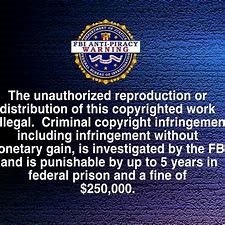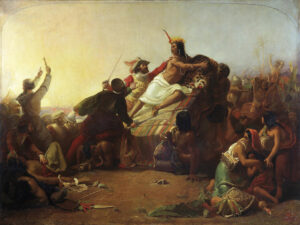Everyone can take photos or videos and upload them to social media but to truly have ownership of the content you must apply for a copyright license. This license is a type of intellectual property that gives the owner the right to copy and distribute their work, usually for a set period of time. Our lives revolve around the internet these days and what we can post online and in our social media to see, share, and use for our own purposes. We become so focused on what social media can or has done for us to improve our lives that we forget what bad can come from using social media. Once a picture or video is posted to any online social media it stays there forever but you never stop to think of who now owns that content. If you’ve posted content, I doubt you ever stopped to think about whether you should have copyrighted your content before posting online. Now, if you don’t copyright your content anyone can use your photo or video you shot, they wouldn’t have to ask you or give you money because you don’t own the content anymore. Is copyrighting of a photo or video really that important? How long does a copyright last? Fortunately, if you want to make sure that your work is protected and maintain ownership then keep reading and you might just find out how to help you secure your content under the copyright law. The importance of copyrighting an individual’s photos or videos needs to be stressed in order for their claim to hold up in a court of law and to allow them to receive all the benefits that follow.
To copyright a photo, you must follow these steps:
- Complete an application form and mail it to the U.S. Copyright Office
- Provide your work that you want to be copyrighted (whether physical or digital copy)
- Pay the filing fee and turn in your application
- Photo becomes copyrighted once office receives both the application and fee
I’m an amateur photographer, myself. Before writing this article, I knew nothing about the world of copyright or what goes into getting a photo I’ve taken officially documented allowing me to own the copyright. I wanted to learn more about why it is important for me to get my photos logged as copyrighted with me owning them, but it just seems like the least fun part of creating beautiful photos. I want to get to a point in my photography career where I can focus on achieving a long-term job in this hard to get into business and I’m still figuring out if I have what it takes.
When I take photos, I love to look at the scenery, take in the freshly cut grass smells, see the bright flowers, explore the location, and hear the sound of my camera flash. I love photography for all the details it allows you can to see in your day-to-day life within your surroundings. So much can be contained within just one good photo. Have you ever seen the face of a person who is looking at your picture for the first time and you’ve started to feel happiness from their smile? Have you ever been stuck in terrible weather like rain or snow but thought to yourself I don’t care as long as this photo comes out great? I have taken photos while out in the cold snow in order to get the best fresh shots while enjoying the view of snow on a flower. Have you seen what snow on a fully bloomed flower looks like? Do you know what ice crystals look or feel like through the camera lens? Seeing the photo in all its glory is amazing but being there is the best feeling when taking a picture in the moment. But what if that beautiful bright photo that you just took was posted somewhere without a copyright? What would happen to your work of art?

This is where the importance of copyright comes in to play. It allows for a person’s hard-earned work to be recognized for their owned property and all the rights that come with this photo belong to them in full. Copyright can be obtained for all different types of images-still or moving.
Have you ever heard about the movie called “It’s a Wonderful Life” from the year 1946? This movie was originally copyrighted to last 28 years, the maximum allowed length at that point in time. In 1974 the copyright term had ended, and the original owners did not apply for a new term. This movie then fell into the public domain where anyone could access or use this movie however they chose without asking for permission. It was not renewed in 1974 because it was thought to not be a very popular movie but once it came into public domain it rapidly became more famous. Since the previous owners no longer owned the copyright to the movie, any profit or fame that came from the movie was legally no longer theirs. Do you see how important a copyright can be? Are you intrigued?
To know more about why copyright is so important, you should first understand all the copyright laws, the years they came into play, and what each law means for copyright ownership over photos or videos. In 1787, the US Constitution stated, “the Congress shall have power . . . to promote the progress of science and useful arts, by securing for limited times to authors and inventors the exclusive right to their respective writings and discoveries” which began the age of copyright. In 1790, The Copyright Act “granted American authors the right to print, re-print, or publish their work for a period of 14 years and to renew for another fourteen” which states the first-time copyright length came into play. In 1831, the Copyright Act was revised to now say “the term of protection of copyrighted works was extended to 28 years with the possibility of a 14-year extension” in order to give American authors same protection as the European authors. This extension is for both future and current works whose copyright has yet to expire. 1
In 1870, a revision to the Copyright Act was made moving the administration of copyright registrations to the Library of Congress Copyright Office. In 1909, a revision was made to the U.S. Copyright Act saying, “the bill broadened the scope of categories protected to include all works of authorship, and extended the term of protection to 28 years with a possible renewal of 28”. In 1976, revisions were made so that this act preempted “all previous copyright law and extended the term of protection to life of the author plus 50 years (works for hire were protected for 75 years)” and this act covered “scope and subject matter of works covered, exclusive rights, copyright term, copyright notice and copyright registration, copyright infringement, fair use and defenses and remedies to infringement”. 2
Along with these laws, there are many court cases with people fighting for rights to copyright a piece of work and the determination of who really owns it outright. A case I discovered while researching this topic was a case involving a soldier’s sculpture depicted in a stamp back in 2010. The case is called “Gaylord v. United States” portraying a soldier’s sculpture in a stamp and if that is copyrighted correctly or used fairly. The US Court of Appeals for the Federal Circuit and the lower court agreed that Gaylord was the rightful author of the sculptures, and the soldiers were not an architectural work under the Architectural Copyright Act. Unfortunately, the appellate court did not agree with that conclusion that the stamp was of fair use of Gaylord’s work. The courts final decision was “the US did no more than direct Gaylord to create the sculptures; it did not add any creative or original elements to the work, and therefore could not be considered a joint author of the sculptures”. 3

Courtesy of pngall.com
Copyright Symbol PNG Transparent Images
Understanding copyright laws can still be challenging and is much more detailed than just understanding the length of time you can hold the copyright for your work. You need to know how to navigate the world of copyright by following all the rules, learning of past copyright mistakes, and knowing how to personally secure your photos and videos. Some people might have different thoughts about who an author is, in terms of your work, and what can be considered their copyrighted work. Some scholars say “an author is an individual who is exclusively responsible for the production of a unique, original work” and that having your signature on your work would be enough. However, when you look at the two views of the copyright owner and the prosumers they think “copyright owners seek to maintain control over information flows, whilst prosumers make (what they consider to be) fair uses of elements harvested from the media-saturated environment”. Any person who uses the internet is considered a prosumer because they are consuming content as well as creating original content which can conflict when new works are created. These new works bring conflict between the creators of the new works and the person who owns the copyrights to the original work. For example, say if I post a picture on my Instagram page and others share my pictures on their stories, without listing my name as the author or adding/changing the captions, this is a copyright violation by the person using my pictures as their own. Copyright only works properly if the users are being truthful. For example, a copyright infringement case from 2010 entailed a photographer posting pictures of an earthquake, pictures sold and circulated, and credit given to person who stole pictures from original owner. The photographer claimed ownership over these photos and went to court and Agence France Presse was given the verdict of guilty of copyright infringement. The original photographer who took and posted the earthquake photos was suing Agence France Presse for stealing their original work and profiting off of that work saying they owned the copyrights to all the pictures. Even though Agence France Presse was not the one who stole the pictures from the original owner, Presse was sold the pictures from another person, he was the front man who sold and profited off the photos. Credit of the stolen pictures was given to three people: Agence France Presse, Getty, and the person who stole the pictures. The original owner of those photos won the court case. 4

Nowadays everyone seems to have some sort of account online for a social media platform like Facebook, Instagram, TikTok, Snapchat, Reddit, Twitter, or Pinterest. These social media accounts focus on sharing content. You may have heard of the term Intellectual property to describe this work. Intellectual property (IP) is “rights in user-generated social media content” which is becoming more popular and the focus of IP litigation. When looking at the Digital Millennium Copyright Act (DMCA) many of the small details of protection are outlined. Even though courts have begun to uphold copyrights for people’s user-generated content, this act needs to be further expanded to protect photographs online. This act “provides a safe harbor from copyright infringement for social media service providers, but service providers still require users to sign away their copyright in images posted to social media sites; here, that safe harbor is a provision within a statute that outlines permissible conduct that is shielded from the other limiting provisions of the act”. 5
Social media software providers use user agreements with unusual terms of service that only offer partial protection of your images, not protecting creators, and changing what is considered a legal standard to protect themselves, and allow other users’ access and use of your content. Those who post their images on social media deserve the full copyright protection when registering their photos by law despite what contracts we as social media users have accepted in the past. Once you take a photo, the photographers photographs ” garner copyright protection in the moment that the image is captured by a camera because when a photograph is taken, the image becomes immediately fixed in the tangible medium of either film or digital storage”. The term of this copyright lasts for the lifetime of the person who took the photo plus seventy years, but the copyrights given to said owner are not without some limitations. Some things to note about social media platforms is users often abandon all their rights to any and all images they might post to a certain network, including, Facebook, Twitter, and Instagram. Facebook states any and all photos posted on their platform “grant us a non-exclusive, transferable, sub-licensable, royalty-free, worldwide license to use any IP content that you post on or in connection with Facebook” meaning whether your photo was copyrighted or not, once you post it to Facebook, where you agreed to their terms of service, it can be used freely. Also, Twitter and Instagram have similar words stated in their agreements saying, “users for royalty-free licenses and the right to sublicense, presumably to any third party”. So, even if you think you still own the copyrights to a photo you took and then posted to one of these platforms, after agreeing to their contract, you would be wrong. 6

Videos are a whole different subject when it comes to content being uploaded, on YouTube and other platforms, by the creators. In fact, the way you want to copyright your content is normally not available before you upload your video. For instance, this would mean “online video creators could use the group registration of unpublished videos option for copyright registration, this is often practically unavailable due to the content of the videos and the need to publish before registering”. These video creators are in a hurry to publish their content in order to gain more viewers and so the video is still currently relevant. A lot of videos you might see today could be over products your reviewing, movies you have watched, feedback on the news, current trends, and music to list a few. You see the point of wanting to publish right away instead of holding content to publish all content elements. Many creators hear about the benefits of copyright registration but later find out that you cannot group register your videos once they have been posted. Having to wait for their group registration of unpublished videos to be approved is time consuming and most likely they will just publish their content without the copyrights. The content creators only option at this point would be to register each of their videos individually after being published online. Therefore, “there is not an option for these creators to group register videos that have already been published, it can be time and cost prohibitive for a creator to register each video that they’ve uploaded to an online video service post-publication, especially if they produce mass quantities of videos”. Since waiting for group registration is hard to do most video creators don’t publish all their content but wait for certain videos to become popular and register those. The process to have your videos properly copyrighted on YouTube or any other platform is very hard to achieve if you are not willing to wait for your videos to be group registered and approved. 7

Taken on July 4, 2008
Courtesy of Flickr
The copyright registration on a video is so important because you took the energy, effort, and time to create an amazing video by using your talents and it is important for you to benefit from your effort financially. For example, if you spent six months working on one video to get the most responses and views from people but someone later posts your same video for free, then they pirated your video. If you didn’t apply for the copyright registration before posting your video, that took six months to work on, then they could post it freely and profit off of it, since you do not own the copyright. By having your copyright registration for each video posted you now have exclusive use of video, the ownership documentation, can prevent misuse of your work, you can profit from the work, and your creativity can shine through to others. This is just a small part of what copyright can mean for your photos or videos, but now you know more about the laws surrounding copyrights, what rights go with your content posted, and how important copyright can be when wanting to share your content with others.
- “Copyright Timeline: A History of Copyright in the United States.” Association of Research Libraries, December 18, 2020. https://www.arl.org/copyright-timeline/. ↵
- “Copyright Timeline: A History of Copyright in the United States.” Association of Research Libraries, December 18, 2020. https://www.arl.org/copyright-timeline/. ↵
- “Copyright Timeline: A History of Copyright in the United States.” Association of Research Libraries, December 18, 2020. https://www.arl.org/copyright-timeline/. ↵
- GROSS, EDUARD-CLAUDIU. “Photography and Intellectual Property: Are Creators Protected by Law?” Saeculum (12212245) 50, no. 2 (December 2020): 50–61. ↵
- “A Picture’s Worth: The Future of Copyright Protection of User-Generated Images on Social Media.” Indiana Journal of Global Legal Studies 24, no. 2 (Summer 2017): 617–36. doi:10.2979/indjglolegstu.24.2.0617. ↵
- “A Picture’s Worth: The Future of Copyright Protection of User-Generated Images on Social Media.” Indiana Journal of Global Legal Studies 24, no. 2 (Summer 2017): 617–36. doi:10.2979/indjglolegstu.24.2.0617. ↵
- Neill, Art, and Erika Lee. “Fixing Copyright Registration for Online Video Creators: The Case for Group Registration of Published Videos.” Texas Intellectual Property Law Journal 28, no. 1 (June 2019): 87–97. ↵




21 comments
Kiana Contreras
This article was very informal with the Copyright material. There was much more to know about this topic; one wouldn’t think you’d need to know this much for being on the internet. Of course, after reading about the necessary rights one has, there is more room to be more aware of what gets posted or how: well-written article, fascinating work.
Christian Guerrero
Hello,
Congratulations on your nomination! After reading this I can say that the internet is crazy as at any moment we could be violating copyright laws just by uploading a selfie just because of a certain product is in the background. Honestly I agree that the reason why we don’t see thousands of lawsuits is because people on the internet are not hindering the sales of products for the company to be concerned about. This topic can go on forever but I enjoyed reading this amazing article.
Madeline Chandler
This was an extremely well-written article, and it was so detailed. It was so interesting because I had very little previous knowledge of the need and the regulations for copyrights. I think in this day and age, taking someone else’s work is easy to achieve, even if it is not malicious. This article informs its audience of the importance of citing especially with photos. Great job, a different topic that most people do not talk about and you wrote about it and did it very well.
Hoa Vo
Thank you for raising concern about copyright via this article, Hannah, it did open my eyes in many aspects. It is always frustrating when we spent our efforts on our content and photos but then some others just stole them from us for a sec and made a profit from them. Knowing about copyright law and how to deal with it is always the right decision, we can then protect our works from internet thieves.
Mauricio Rebaza Figueroa
Hello Hannah, congratulations on your nomination, I think this is a really good article. I think it is quite important for everyone to learn more about intellectual ownership on internet because it is where most people our age spend their time and I think your article did a good job on that. You used good images and good sources that made your article trustworthy. Good job.
Natalia Ramirez
This was a very interesting article to read, and it helped me learn about what can be copyright. I feel like it can be very easy to obtain photos that are not yours, which is why it is important that we learn to avoid theft. I really liked how you included step by step on how copyright a photo. Very important information to learn!
Sarah Rodriguez Rodriguez
This article interested because of the many changing laws because of the internet and the critique regarding copyright and the many lawsuits that happen here in the U.S. It’s interesting learning about what you own and what can be used as profit without your consent. This is something that definitely should be teached and explained to everyone who uses the internet and participates in it. Very informative.
Andrea Ramirez
This is a very informative article that you can get a lot of use out of. It is very important to be aware of this issue and its process. Especially people like you who are photographers and who are uploading their work to the internet, to avoid work theft. Thanks to your work, I now have a clear notion of how to protect my own images or works. Finally, I thought it was a very good idea that you added one of your photographs to the article because that gave it a unique touch. Congratulations on your work and nomination!
Anissa Navarro
It is so interesting to read about how the internet works with copyrights. Your opening paragraph really grabbed my intention when it asked if I ever stop to think about what I post and my rightful belongings of it. I am glad you were able to do research on a topic that means so much to you and can help you and many others in this career.
Paula Ferradas Hiraoka
Hello Hannah,
First of all, congratulations on your nomination and getting your article published!
This article opened my eyes with the use of copyright and especially, how the internet works. I also like the selection of pictures for the article, and it’s really beautiful some of the pictures that the author posted on the article. After reading, know I’m aware of copyright and how to protect my images and mostly, understand the online world.
Overall, amazing work and good luck!